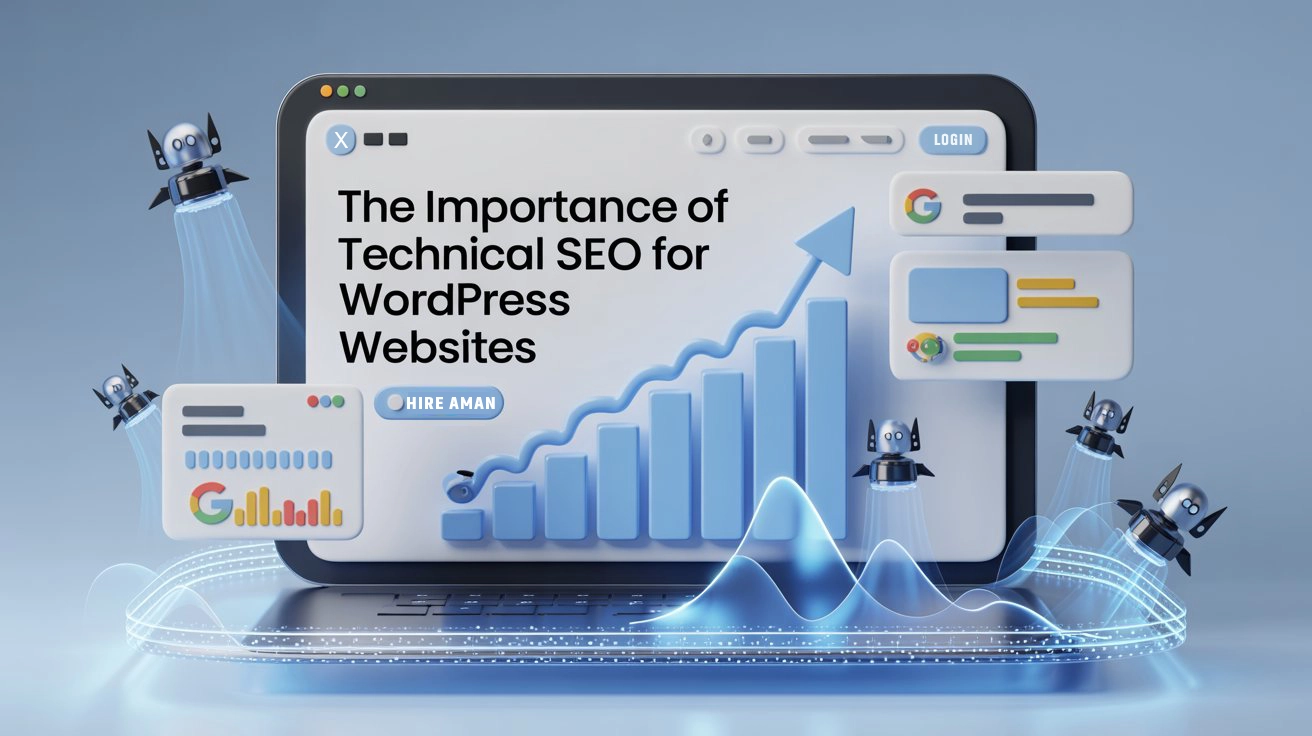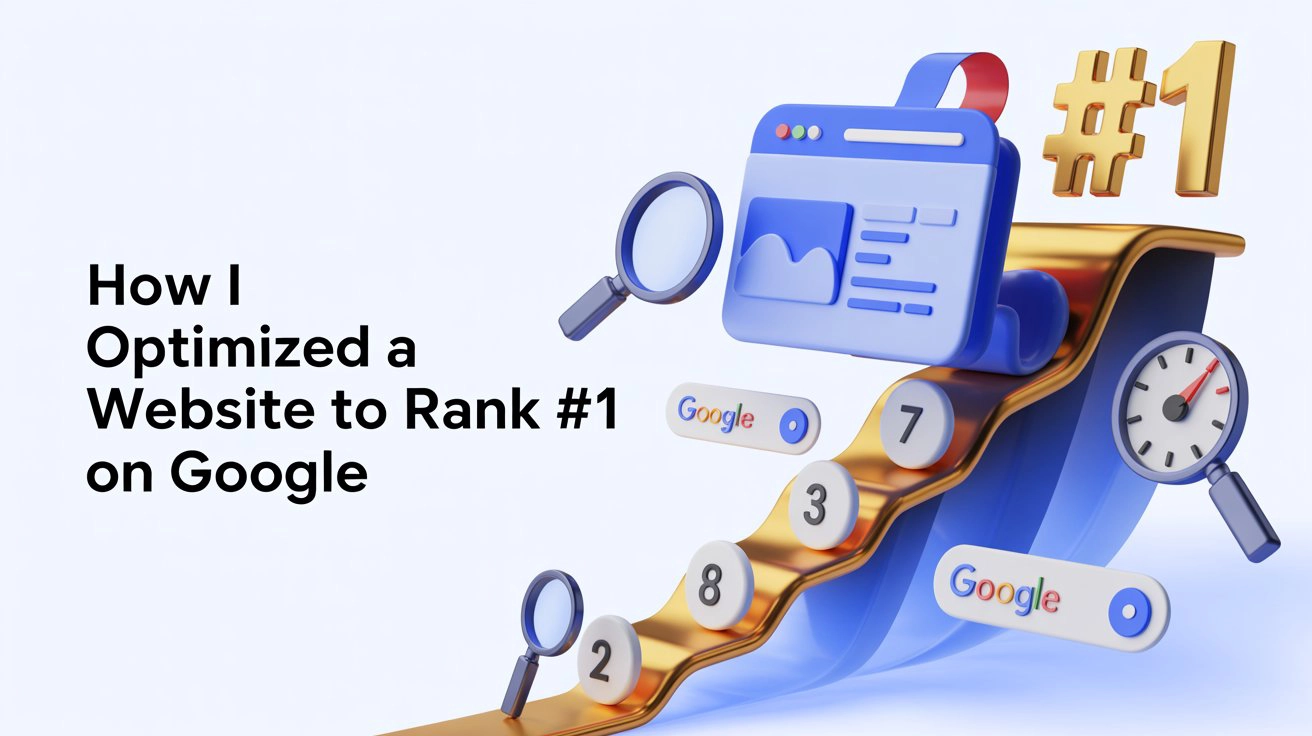When it comes to SEO, the common focus is on keywords, backlinks, or content. These elements are certainly important, but there’s another aspect of SEO that often doesn’t get the attention it deserves: technical SEO.
Technical SEO involves the behind-the-scenes tweaks that make sure your website is fast, secure, easy to navigate, and accessible for both search engines and users. If your site isn’t technically sound, even top-notch content may struggle to rank.
As of 2025, the significance of technical SEO for WordPress websites has surged, influenced by Google’s Core Web Vitals, mobile-first indexing, and AI-based search algorithms. Without a solid technical foundation, you could lose out on rankings, traffic, and conversions.
In this post, I will delve into what technical SEO means for WordPress, why it’s essential, its key components, frequent pitfalls, tools available, and practical tips to enhance your site right now.
What is Technical SEO?
In straightforward terms, technical SEO is all about optimizing your website’s structure so that search engines like Google can crawl, index, and rank it effectively.
It differs from:
- On-page SEO: This focuses on content, headings, and keywords.
- Off-page SEO: This is about building backlinks and establishing brand authority.
Think of technical SEO as the backbone. Without it, your WordPress site might remain unnoticed by Google, regardless of how great your content is.
For WordPress websites, technical SEO ensures that:
- Your site loads quickly.
- URLs are clean and well-structured.
- Pages are easily crawlable and properly indexed.
- HTTPS encryption (SSL) is enabled.
- The site functions seamlessly on mobile devices.
Why is Technical SEO Crucial for WordPress Websites?
So, what makes technical SEO so important in 2025? Here’s a breakdown:
- Enhanced Rankings
Google favors sites that meet certain technical criteria, such as fast load times, mobile optimization, and secure HTTPS connections. If your WordPress site falls short in these areas, your rankings will suffer.
- Better User Experience
A well-optimized site is quicker, easier to navigate, and more secure. Visitors are more likely to stick around and engage if they aren’t battling slow load times or broken links.
- Increased Conversions
Factors like speed, trust, and usability play a big role in driving sales and leads. Google reports that a single second delay in load times can drop conversions by up to 20%.
In summary, technical SEO is all about building a solid foundation that supports your content and marketing strategies.
Key Elements of Technical SEO for WordPress
Here are the key areas you should be optimizing on your WordPress site:
1. Website Speed & Core Web Vitals
Google considers Core Web Vitals in its rankings, which assess loading speed, interactivity, and visual stability.
- Opt for lightweight themes.
- Choose reliable hosting.
- Enable caching tools like WP Rocket or W3 Total Cache.
- Use Content Delivery Networks (CDNs) like Cloudflare.
- Optimize your images with tools like ShortPixel or Smush.
2. Mobile-Friendliness
With Google focusing on mobile-first indexing, your mobile site’s performance is more critical than your desktop version.
- Pick a responsive WordPress theme.
- Test using Google’s Mobile-Friendly Test tool.
- Avoid intrusive pop-ups.
- Consider implementing AMP for quicker mobile loading.
3. Crawlability & Indexation
If Google can’t crawl or index your site, it won’t show up in search results.
- Maintain a clean robots.txt file.
- Generate XML sitemaps with Yoast SEO or Rank Math.
- Steer clear of duplicate content.
- Implement canonical tags.
4. HTTPS & SSL
Sites that aren’t HTTPS are flagged as “Not Secure” by Google, which can deter users.
- Always install an SSL certificate.
- Ensure all HTTP traffic redirects to HTTPS.
- Resolve any mixed content errors.
5. Clean URLs & Permalinks
A good URL should be short, detailed, and include relevant keywords.
- Use WordPress Settings → Permalinks → Post Name format.
- Avoid unnecessary parameters in URLs.
6. Structured Data (Schema)
Structured data enhances how Google interprets your content, allowing for richer snippets in search results.
- Use Schema plugins like Rank Math or Schema Pro.
- Add FAQ, product, and review schema where appropriate.
7. Canonical Tags & Managing Duplicate Content
Duplicate pages can confuse Google.
- Use canonical tags with plugins like Yoast or Rank Math.
- Redirect any duplicate URLs.
8. Broken Links & Redirects
Broken links can hurt both user experience and SEO performance.
- Use a tool like Screaming Frog to scan your site.
- Fix or redirect broken links.
- Opt for 301 redirects instead of 302.
Essential Tools for Technical SEO in WordPress
Here’s a list of tools you shouldn’t miss:
- Google Search Console – Keep track of indexing and crawling issues.
- Google PageSpeed Insights – Analyze your Core Web Vitals.
- Screaming Frog – Crawl and audit your website.
- Ahrefs / SEMrush – Perform in-depth SEO audits.
- Recommended WordPress Plugins:
- WP Rocket (for caching)
- Rank Math (for SEO)
- Yoast SEO (for metadata and sitemaps)
Common Technical SEO Mistakes (and How to Fix Them)
❌ Slow Site Speed
Fix: Switch to a faster hosting provider.
❌ Missing Sitemap or Incorrect Robots.txt
Fix: Use Yoast/Rank Math to auto-generate XML sitemaps.
❌ SSL Issues
Fix: Install SSL and utilize the Really Simple SSL plugin to enforce HTTPS.
❌ Overloaded with Plugins
Fix: Keep only essential plugins and remove any unused ones.
❌ Mixed Content Warnings
Fix: Ensure all media and scripts are updated to HTTPS.
Real-Life Example
I worked on a client’s site in the interior design sector that struggled with rankings due to sluggish speed and a lack of SSL. After addressing the hosting issues, enabling caching, and installing SSL, their Google rankings experienced a noticeable boost within two months.
Traffic rose by 40%, and bounce rates significantly decreased, demonstrating how crucial technical SEO is for WordPress’s success.
Conclusion & Call to Action
The importance of technical SEO for WordPress cannot be underestimated. From speed and security to crawlability and structured data, these technical components are fundamental to your site’s SEO effectiveness.
Without proper technical optimization, even the finest content may struggle to yield results.
Action Step: Conduct a technical SEO audit today and address any issues before they impact your rankings and conversions.
Need expert assistance with technical SEO for WordPress? I’m Aman Aggarwal, a WordPress Developer experienced in enhancing website speed, security, and SEO-friendliness.
Reach out at amanaggarwal.in and let’s work together to optimize your site for success.



